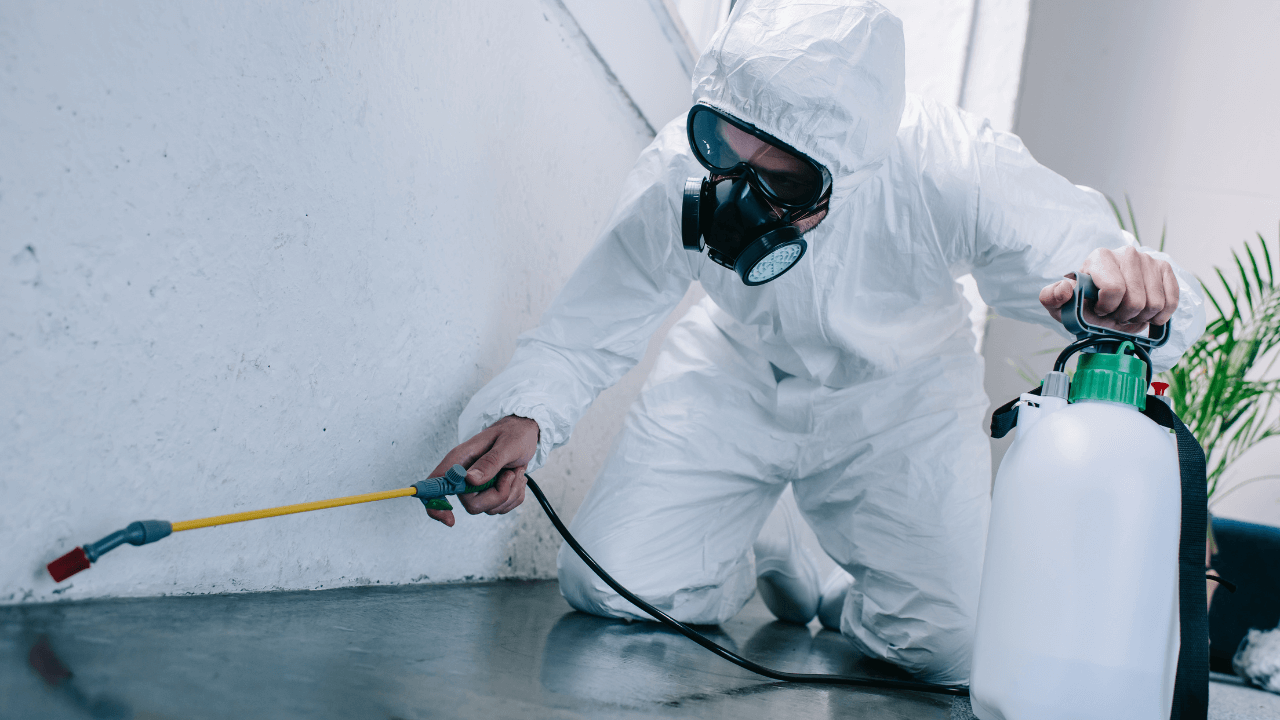The Best Guide To Pest Control
The Best Guide To Pest Control
Blog Article
The Best Strategy To Use For Pest Control
Table of ContentsThe 30-Second Trick For Pest ControlSome Of Pest ControlPest Control Fundamentals ExplainedLittle Known Questions About Pest Control.The 8-Second Trick For Pest Control
Water (moisture) is taken into consideration a favorable condition that will urge pest infestations and can likewise result in inadequate air high quality inside. Get rid of tree and/or shrub branches that are touching the exterior wall surfaces or roofing of a home because bugs, including rats and ants, frequently utilize them to find a means into the home (Figure 6).
Eliminate or frequently clearing water-holding containers that supply insect breeding websites. Examine the within of your home and eliminating areas where bugs can conceal and reproduce inside your home.
When a parasite has been controlled, it does not suggest the job of insect control has ended. Pest control should be taken a part of routine home upkeep, especially in states like Florida experience hefty parasite stress. Frequently employing a preventative strategy to pest control using monitoring can conserve cash and avoid damages to your home and the goods saved within.
Lawn and ornamentals (L&O). Fumigation. Business are required to have a licensed driver in each of these categories if they are offering these solutions. What is the "certified operator?" The licensed operator is an individual that has actually fulfilled the state needs to exercise parasite control (Pest Control). Certified operators should pass a state exam in a details classification of pest control.
Our Pest Control Statements
The state definition is an "private holding an existing pest control driver's certification issued by the division." (FS 482.021). Who is the "licensed operator in-charge?" The licensed operator in-charge is accountable for the day-to-day operations at the location of the pest control business. He or she is in charge of selecting the techniques and products made use of in servicing your home.
What are the needs to come to be a service technician? After being worked with by a parasite control firm, the licensed operator in-charge has up to thirty day to apply for an identification card for the new technician with FDACS. Within six months of hire, the specialist is needed to have at the very least 40 hours of documented training.
The other hours are in undefined subjects within the categories of general family bugs, termites and wood-destroying microorganisms (WDO), and yard and ornamental parasite monitoring. After the preliminary training, the technician is required to have 2 hours of training yearly (Pest Control). Records needs to be maintained by the company and readily available to FDACS for testimonial upon request
Some Ideas on Pest Control You Should Know
Below are several of the crucial benefits of this strategy: One-time insect control solutions are designed to attend to a specific pest problem available. It's excellent for those that are taking care of a single, isolated invasion and desire a fast resolution. In lots of instances, a single service is much more economical than a lasting parasite control strategy.
If you're handling a parasite emergency, an one-time service can provide instant alleviation. Pest Control. Bug control professionals will certainly do something about it to get rid of the parasites right away. There are no legal commitments or persisting settlements associated with an one-time service. As soon as the pests are gone, the solution is complete. A parasite control plan, on the other hand, includes a recurring connection with a bug control company.
Here are the essential functions and benefits of pest control plans: Insect control plans offer continuous, year-round security versus a selection of insects. They are ideal for house owners who wish to stop problems and preserve a pest-free environment. These strategies usually entail set up visits from specialist pest control professionals that check, deal with, and monitor your residential or commercial property throughout the year.
These sees are usually set up on a monthly, quarterly, or yearly basis, depending upon the plan. Bug control strategies are proactive in nature. They aim to spot and resolve pest concerns before they come to be full-on invasions. This can save you from taking care of much more considerable and expensive problems down the line.
Facts About Pest Control Uncovered
By investing in a bug control strategy, homeowners obtain peace of mind, understanding that their building you can check here is safeguarded year-round. The choice Read More Here between a single bug control solution and a parasite control plan mostly depends on your unique scenario.
If you're looking for lasting avoidance and tranquility of mind, an insect control strategy is a smart investment. Consider aspects such as the kind of bugs you're taking care of, your place, your spending plan, and your long-lasting goals for parasite monitoring. It's frequently an excellent idea to talk to a reputable pest control business to review your options and receive expert guidance in making the right selection for your home.

The Single Strategy To Use For Pest Control
The Home Guard Pro plan is a full-service option for larger residential or commercial properties beginning at 3,000 square feet., Ticks, Fleas, and Painful Pests.
Similar to the various other plans, the Home Guard Full deals year-round protection from insects, consists of best site interior and exterior assessments and treatments, and treatments for outside pests like mosquitoes, ticks, and fleas. It likewise quits termites from feeding on and ruining your home!: Annoyance ants, Woodworker ants, Centipedes, Cockroaches, Earwigs, Millipedes, Computer Mice, Silverfish, Spiders, Fire Ants, Mosquitoes, Ticks, Fleas, and Stinging Insects PLUS Termites.
Report this page